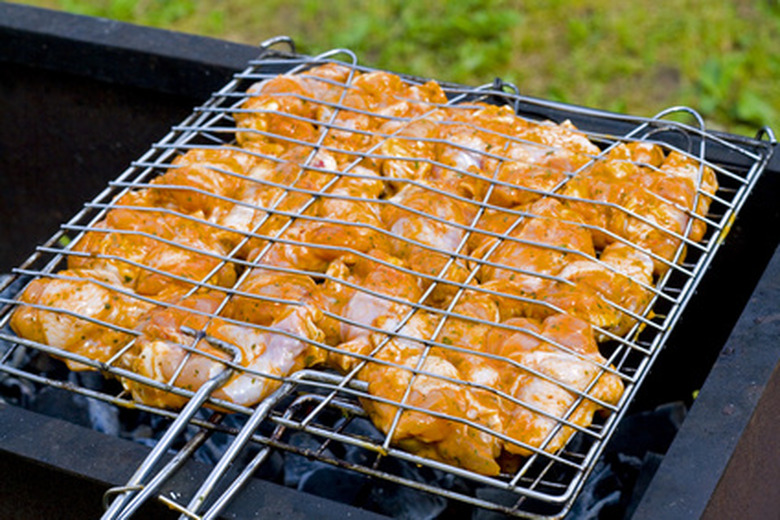Difference Between LP & Propane
All liquefied petroleum (LP) can be classified as propane but not all propane is LP. In other words, LP represents one class of propane, similar to the difference between ice and water. Understanding the characteristics of LP as opposed to propane in general becomes important when the substances are used for heating or cooking. Both have dangerous aspects that need to be identified and respected for safety purposes.
Features
Features
Propane cannot be found naturally. Oil and gas comes out of wells, and during the refining process, propane is produced as a byproduct. Storage of propane requires liquefaction. That means that the only way propane can be stored is if it is turned into a liquid, or LP. That process requires a minimum temperature of 44 degrees below zero Fahrenheit. Thus LP is a very cold substance that can cause serious damage to the skin. When the temperature of propane is raised above 44 degrees below zero, it transforms from a liquid to a gas, or vapor. This vapor state marks the difference between LP and propane.
Considerations
Considerations
LP storage and transportation requires containers specially designed for that purpose. Large storage containers resemble tubes and are long cylinders. For individual use at home, small tanks with a handle provide ease of transportation and storage. For safety the tank must always be kept in an upright position. LP is a dangerous substance that can ignite and cause an explosion.
Identification
Identification
Propane in its vapor form has no color or odor. Since it is subject to ignition and explosion, its presence presents dangers. Propane vapor is also heavier than air. When it escapes in an outdoor setting, that characteristic does not cause problems since the air will carry the vapor away. However, propane in a closed setting like a home will settle to the lowest point, like the floor, and remain there where a spark could ignite it.
Uses
Uses
LP and propane cannot be mixed in any appliance. If a gas stove requires propane in vapor form for operation, LP cannot be substituted. Likewise, a gas grill manufactured for LP cannot use propane vapor. Propane in its two different forms are not compatible.
References
Cite This Article
MLA
Alley, Robert. "Difference Between LP & Propane" sciencing.com, https://www.sciencing.com/difference-between-lp-propane-7869612/. 24 April 2017.
APA
Alley, Robert. (2017, April 24). Difference Between LP & Propane. sciencing.com. Retrieved from https://www.sciencing.com/difference-between-lp-propane-7869612/
Chicago
Alley, Robert. Difference Between LP & Propane last modified March 24, 2022. https://www.sciencing.com/difference-between-lp-propane-7869612/
